Sorting your bio-waste in Béziers, a necessity but above all a great challenge to take on in the year 2024
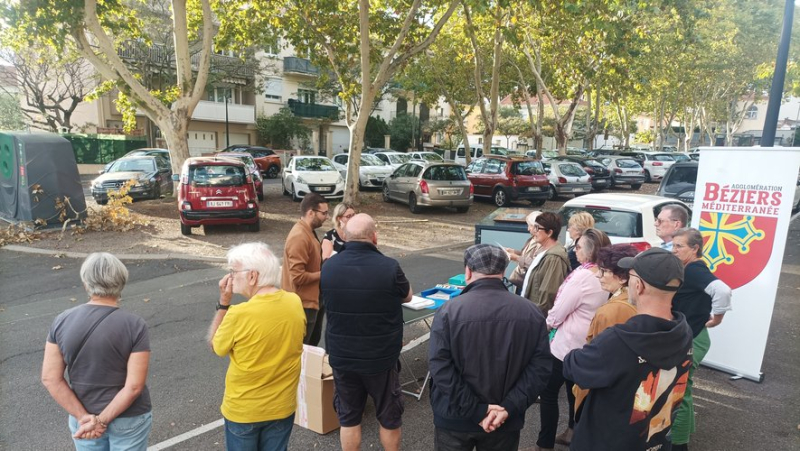
The installation of a voluntary drop-off point on the Place du 8-Mai-1945 has proven to be a real success Agglo Béziers Méditerranée
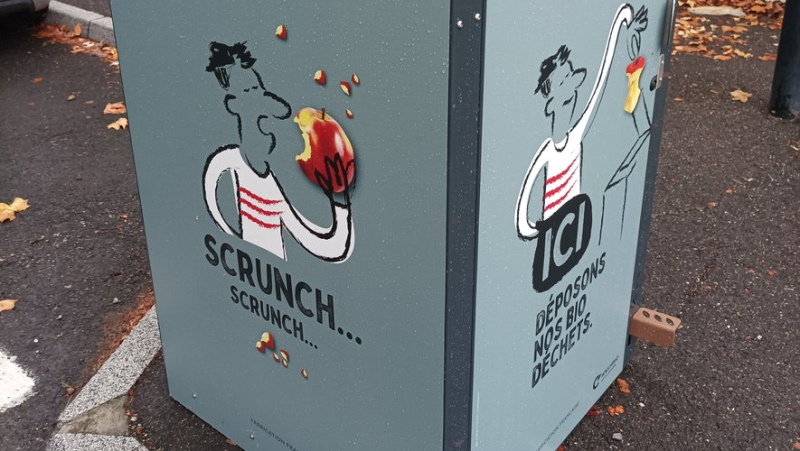
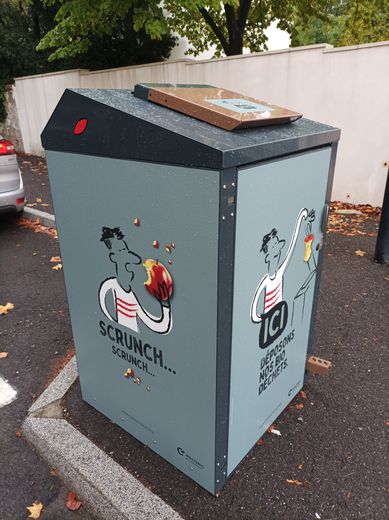
The PAV for the place du 8-Mai-1945 is collected every 5 to 6 days. Agglo Béziers Méditerranée
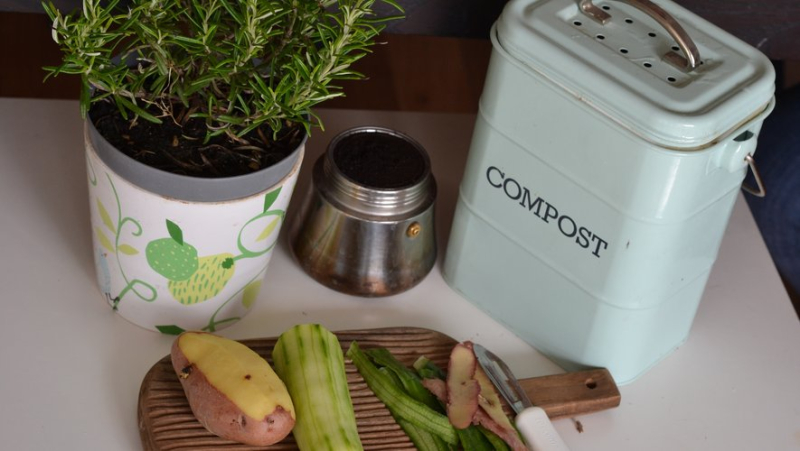
Biowaste is waste from our kitchens: peelings, egg shells, coffee grounds, etc. Illustration Lenka Dzurendova – Unsplash
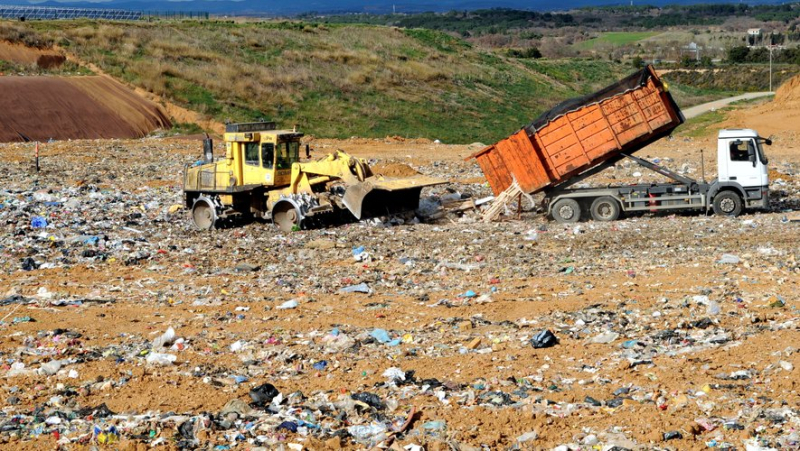
The Saint-Jean-de-Libron storage center can no longer accommodate our bio-waste and that’s a good thing. Archive PIERRE SALIBA – Midi Libre
The collection of bio-waste has been compulsory since January 1. Tested in 2023 with 10,000 households, door-to-door collection of these kitchen waste will not be widespread. The Agglo has decided to develop voluntary drop-off points and promote individual composters.
Revolutionize mentalities! Since January 1, 2024, European regulations and the French Agec law of 2020 (anti-waste law and for circular economy) requires all waste producers (households, professionals, administrations and communities) to sort bio-waste in order to prevent it from ending up in the gray trash can. The idea being to promote them rather than throw them away.
"You should know that this organic waste, also known as kitchen waste, represents at least 30% of our trash according to a study carried out by Ademe (Environment and Energy Management Agency), indicates Stéphane Gachon, director of the "Waste Prevention and Management" department. at the Agglo Béziers Méditerranée. The objective of the law is to succeed in capturing 50% of this 30%, or 15%, he continues.
For the planet and for our wallets
A new ecological fad ? Yet another constraint when, after all, we pay the TEOM (household waste removal tax) sufficiently dearly ? No, a simple question of common sense. For the planet and for our wallets too. In order to prevent all this organic matter from going up in smoke in an incinerator, the fallout from which can be harmful to health, or from ending up in a landfill, where the leachate (juice from fermentation), mixed with other materials can pollute soils and groundwater. However, they can nourish our soils and gardens once transformed into compost or be transformed into energy via methanization.
A horse-drawn collection for the hyper-center
The decision has not yet been officially recorded but the mayor of Béziers Robert Ménard had already announced it in the community council on October 17. The idea may seem anecdotal or even preposterous but it has already proven itself elsewhere: collecting bio-waste in the narrow streets of the city center using horses and a cart.
The experiment has in fact been carried out for several years in Vendargues, a town located to the east of Montpellier. This uses horses to take children to school, for their greatest pleasure. And developed the collection of kitchen waste to intrigue and seduce the inhabitants. More than ten years ago, the municipality had 25% selective sorting of household waste, greenhouse gas emissions reduced by almost 35% and the creation of jobs as a benefit of the # 39;operation.
"It's a big challenge for communities because we realize that sorting is a model that contains enormous inertia. People’s habits and practices change slowly,” continues Stéphane Gachon. Like, for example, door-to-door glass collection. A financial pit, greedy in terms of equipment (truck rotations), human resources and fuel, but which many residents of Béziers still regret the abandonment of in favor of transport points. #39;voluntary contribution.
A disappointing experiment
Same observation for bio-waste. In 2023, the Agglo launched an experiment with 10,000 households in the five municipalities managed by municipal authorities. But the experience did not live up to expectations and the generalization envisaged this year for all suburban neighborhoods (100,000 inhabitants) was abandoned (read here -below).
Disappointment with door-to-door collection
In 2023, the Agglo Béziers Méditerranée has equipped itself with 10,000 households with orange trash cans – 6,000 à Béziers and 1 000 in each of the four communes of the region: Sauvian, Sérignan, Valras and Villeneuve-lès-Béziers. The goal: to collect bio-waste door-to-door once a week in fall-winter and twice a week from May to April. september. But the system flopped, like almost everywhere in France.
"By exchanging our experiences with other communities or specialized organizations (Ademe, Pollutec salon…), in the' ;Hérault, in Occitanie or elsewhere, we have all made the same observation: door-to-door collection of bio-waste is not efficient' quot;. The main obstacle is that these kitchen scraps are considered “as generators of nuisances (odors, worms, etc.), particularly in high heat” ;.
L'Agglo was counting on a collection of 600 tonnes in 2023. Alas, she collected only 400 tonnes. Collection will continue for the 10,000 households but will not be generalized throughout the year. all of the residential areas of the Agglo.
"We did a test at the end of the year in a neighborhood equipped with a voluntary contribution point (PAV). On the Place du 8-Mai-1945, we installed a shelter for bio-waste which works very well. The advantage is that you don't need to think about the days when you have to take out the trash. This is the solution that the Agglo chose: generalize PAVs and invite people who are lucky enough to have a garden to invest in an individual composter. "And we equipped DPOs, schools and nurseries, etc. collective composters."
The advantage of these voluntary drop-off points is that collection will take place 5 or even 6 days a week. ;Agglo will deploy around 150 in the 5 municipalities this year. "Rather than exporting our bio-waste to Elne, it is better to recycle it". Especially since a project for a methanization unit is in the pipeline and should see the light of day within three to four years, in order to produce gas ;energy. Finally, our food leftovers are not waste but a real raw material.
And if we sort it out a little ?
Specificity. The case of Béziers is particular since the collection of household waste is done under community management for five municipalities: Béziers, Sauvian, Sérignan, Villeneuve-lès-Béziers and Valras. The other municipalities come under the appropriate services of other intermunicipalities (La Domitienne, Les Avants-Monts, sictom de Pézenas). The municipal service has 220 agents and has an annual budget of 40 M€ (investment and operation).
Collection.If the yellow bins dedicated to packaging are now sent to the Oekotri center in Saint-Thibéry, inaugurated on November 29, the gray bins are sent to the Valorbi site. There, the mechanical sorting plant separates bio-waste, packaging (for those who have not sorted) and residual waste. The first are transported, at the expense of the Agglo, to the Tubert company, in Elne in the Pyrénées-Orientales where they are composted. The 2nd leave towards Oekotri and the last are directed to the non-hazardous waste storage facility (ISDND) in Saint-Jean-de-Libron.
Objective. The Agglo’s objective regarding biowaste is to exceed 600 tonnes collected in 2024. And to provide residents with individual composters. They are on sale to the community at the price of 15 €.
Grey bins. What remains in the gray bin once we have sorted glass, packaging and bio-waste ? Anything related to hygiene (diapers, tissues, cleaning wipes), broken dishes, broken non-electrical objects…
I subscribe to read more




